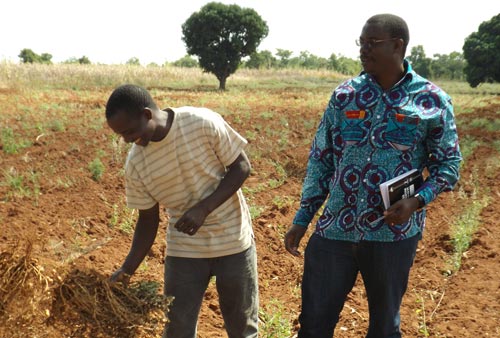Ian Milimo
MSc Social Policy and Social Development
Why did you choose to study at The University of Manchester?

I am a Zambian National who chose to study at the University of Manchester in 2003. The decision to choose this great institution was inspired by one of my former lecturers at the University of Zambia Dr Makasa, who had left the university for further studies at The University of Manchester. I kept communicating with him which developed my interest, and I began to research a little bit more about The University of Manchester and the city in general. He eventually sent me application forms which I completed and fortunately got accepted with a conditional offer, subject to graduating with upper degree and securing funding for my studies.
Why did you choose your particular course?
Since the early 1980s Zambia, like many other Sub-Saharan African countries, were battling the high incidences and prevalence of HIV and AIDS. This had driven me to contribute at a young age when I formed and led what we called Anti-AIDS clubs in school. This somehow shaped my career goal as I wanted to help and serve people especially youths who were contracting HIV and dying from it. During my holidays at the University of Zambia, I started volunteering at a small Non-Government Organisation, Kara Counselling and Training Trust, one of the first local NGO to focus on stemming the HIV/AIDS tide in Zambia. As such, this made me look for a course and university that would give me the skills to help people at community level. This is how I ended up doing a master’s in social policy and Social Development with the thesis on ‘NGOs response to HIV and AIDS in Zambia’. My thesis was supervised by Professor Uma Kothari and Dr Elizabeth Kopel.
Has your qualification helped you in your career?
It was the IDPM qualification that gave me the first substantive job as Team leader. The master’s in Social Policy and Social Development had several exciting modules and lecturers that ignited my thinking and gave me tools with which to function. It was also encouraging during my masters that several IDPM lecturers such as Prof. David Hulme, Prof. Sam Hickey and Dr Admos Chimhowu had done several studies on Zambia. This kind of inspired me a little bit more. Using the qualification, I got from IDPM, I moved up the ladder quickly mainly because The University of Manchester and IDPM are highly recognized and respected globally.
Were there any specific modules or lecturers who particularly inspired you?
Professor Uma Kothari was the main lecturer in my course and her Perspective on Development module opened my thinking and grew my interest in development matters. Professor Sam Hickey took me in: Poverty and Livelihood Analysis, a course I feared at first but one I came to like so much. This should be the course that enabled me join UNDP where I was responsible for Poverty Reduction and Inclusive Growth. Dr Admos Chimhowu took us in Project Design while Prof. Tim Jacoby took me in Post Conflict Reconstruction. I have since been able to use the skills from both courses as I have had an opportunity to design development interventions from scratch. Through the Post Conflict course, I developed interest in Peacekeeping and Humanitarian work and have now come to also appreciate it more as UNDP is involved in a number of Post-conflict reconstruction such as the case for Haiti and many others including the current Covid-19 response in which the organisation leads the Socio-Economic Recovery. In addition to the lecturers cited here, there are several others including Prof David Hulme, Prof Armando Barrientos, Dr Elizabeth Kopel, Prof Anthony Bebbington, Prof Tim Jacoby, Dr David Lawson, and Prof Philip Woodhouse. These had taken me through a module or a full course.
Was your degree funded by a scholarship or donor?
I was very fortunate to have received the Cannon Collins Education Trust for Southern Africa Scholarship. It was going to be totally impossible for me to get to the University of Manchester without the financial support of this organisation. I still thank and appreciate the opportunity the gave me to achieve my dream. I came from a humble background where both my parents were retired as teachers and working as peasant farmers. This means, the income from there was never ever going to finance my postgraduate studies.
What is your best memory from your time at Manchester?
The field trip to Sri Lanka was amazing because we had an opportunity to learn development in practice. At that time, Sri Lanka was just coming out of a deadly civil war but doing exceptionally well with some of the Huma Development Indicators such as primary enrolment. With Covid-19, it would be interesting to see how the institute has continued with such initiative. It was also a pleasure to be in class with students from all over the world. In my course, we had students from Pakistan, South Korea, Argentina, France, Uganda, and Kenya. This was just amazing.
Do you have any tips or advice for current or prospective students?
It is important for students to already know the industry they want to contribute to and work for and begin to shape the selection of courses that would give them an edge. Important also to be on a look out for internship, Junior Project officer opportunities in UN as this may help learn more about the work of this global institution. Also accept to start low and move up steadily. This certainly worked for me.
